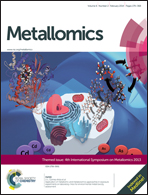Disruption of zinc homeostasis and the pathogenesis of senile dementia
Abstract
Zinc (Zn) is an essential trace element that is abundantly present in the brain. Although Zn plays crucial roles in learning and memory, numerous studies have indicated that the disruption of Zn homeostasis, namely both depletion and excess Zn, causes severe damage to neurons and is linked with various neurodegenerative diseases including Alzheimer's disease and vascular dementia. Here, we review the current understanding of the role of Zn in the pathogenesis of these neurodegenerative diseases. Based on our findings and other numerous studies, Zn acts as a contributor to Alzheimer's disease in the oligomerization, and as a protector in the neurotoxicity of Alzheimer's β-amyloid protein. Furthermore, Zn plays a central role in ischemia-induced neuronal death and the pathogenesis of vascular dementia. Involvement of Ca2+ dyshomeostasis and endoplasmic reticulum (ER) stress in the mechanism of Zn-induced neurotoxicity are suggested. We also discuss the possible role of carnosine (β-alanyl histidine), a dipeptide that is present in the brain, as a protective substance for neuronal injury.

- This article is part of the themed collection: Fourth International Symposium on Metallomics, Oviedo, Spain

 Please wait while we load your content...
Please wait while we load your content...